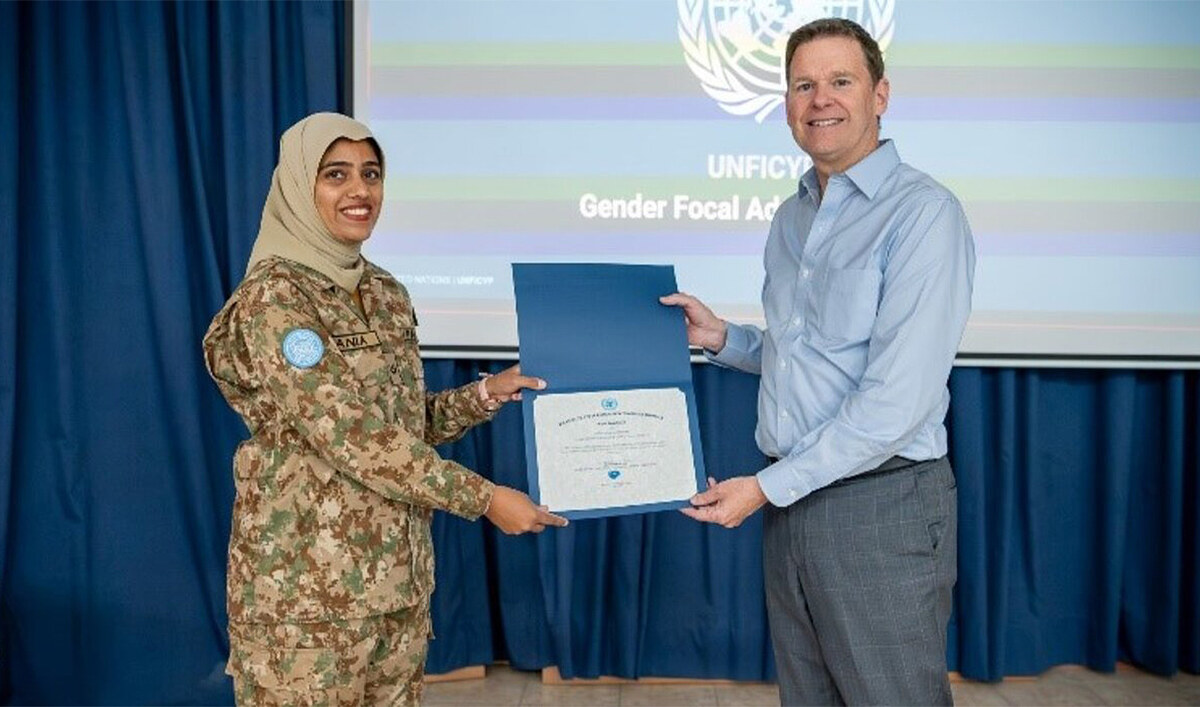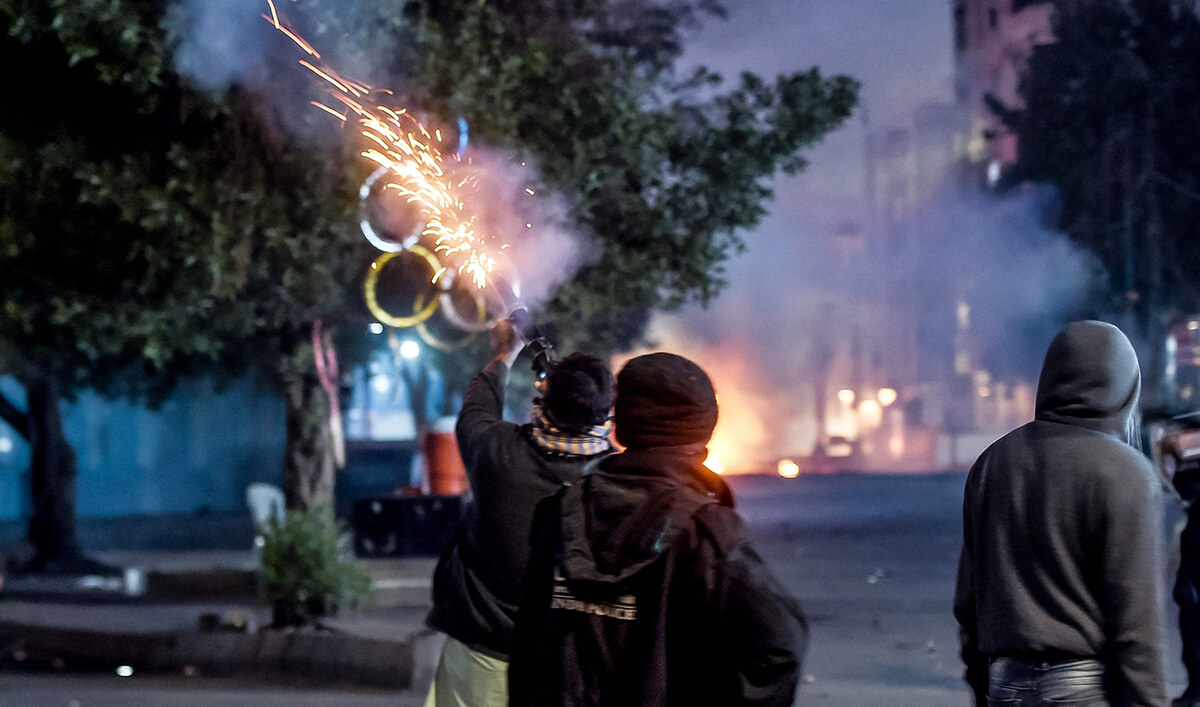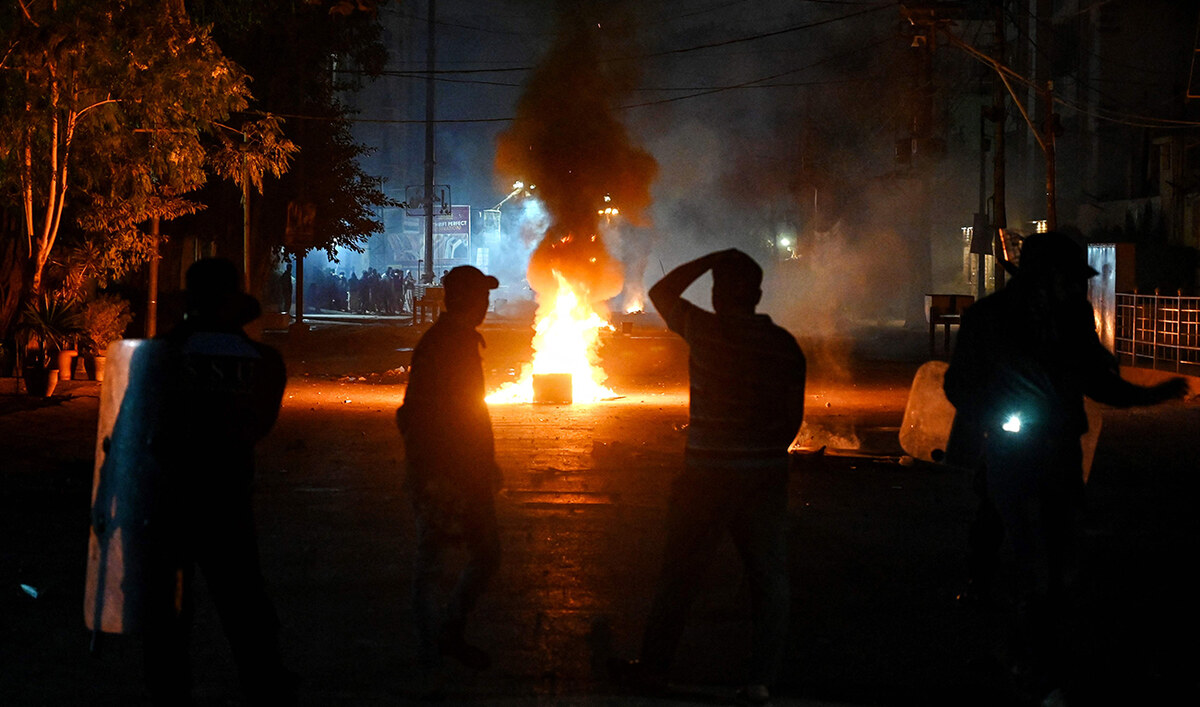RAWALPINDI: When Major Sania Safdar was posted with the United Nations Peacekeeping Force in Cyprus (UNFICYP) last year, she never expected that her service would lead her to becoming the first peacekeeper from the mission to receive the 2023 Certificate of Recognition for gender advocacy.
Safdar, 36, was presented the certificate in August this year by the New York-based UN Department of Peace Operations for advocating gender equality as a member of the UNFICYP. She served from July 2023 to November 2024 as the mission’s Force Signal Officer and one of its military gender focal points.
“I am the first [Pakistani] peacekeeper from that mission who received this certificate of recognition for gender advocacy, and I am very happy and proud,” Safdar told Arab News in an interview this week.

The picture shared on August 14, 2024, shows Major Sania Safdar (left) receiving a Certificate of Recognition for gender advocacy issued by the United Nations Department for Peace Operations in New York. (UN Peacekeeping/X)
She said her work involved promoting equal representation of women in all activities, organizing initiatives for them and ensuring their participation in planning, exercises, and operations throughout the mission. Since her deployment to the mission last year, she proactively took charge of several initiatives “by focusing on integrating the Women, Peace, and Security Agenda into military components of the Mission’s work,” the UN said.
Getting the certificate of recognition is not the soldier’s only memorable achievement as a member of the UNFICYP.
After she left the peacekeeping force in Cyprus, the chief of the mission wrote a letter of appreciation to Pakistan Army Chief Gen. Asim Munir, recognizing Safdar’s efforts as a staff officer.
“I am really happy and really proud to have two certificates with me when I finish my UN mission,” she said.
Safdar was also nominated for the 2023 UN Military Gender Advocate of the Year Award that “recognizes a military peacekeeper who has best integrated a gender perspective into peacekeeping activities.”
While the award went to Major Radhika Sen, an Indian peacekeeper deployed in the Democratic Republic of the Congo, Safdar said being nominated was achievement enough.
“Because of all my performance, I was nominated for this award,” she said.
“DREAM JOB”
Safdar hails from a small village in Pakistan’s Gujur Khan district and has a background in engineering.
“It was not very common in our village for the ladies to go outside and to live in the hostels for higher education,” Safdar said.
But her father, a retired teacher, encouraged her to join a post-graduate college in the city of Rawalpindi, from where she completed her Faculty of Science degree.
“When I came to know that now there is an opportunity for ladies from the engineering department to join the army, so it was my dream job,” Safdar said.
“Even after my BS [Bachelor of Science degree], I got the scholarship for my MS [Master of Science] education and it was a very good scholarship from abroad but I rejected that scholarship and I joined the military [in 2012].”
But life has not always been easy for Safdar, who is married to an army officer and has two sons under the age of ten. Indeed, while she described her service in Cyprus as a “wonderful experience,” living thousands of miles away from her young family came with its own set of challenges:
“In the middle of the mission, my elder son was facing some medical problem … and I was so much worried and so much concerned that my family responsibilities were being compromised.”
At one point, the major considered quitting the mission but her husband and family motivated her to continue serving.
It has all worked out for the best, as she said her family and especially her children were proud of her.
“When I visit their school they tell their class fellows, ‘Look, my mother is serving, my mother is in uniform,’ and sometimes they request me to, ‘Please come to our school and mama, please come in uniform’,” she said with a smile.
“This is, I think, the most proud moment for me that my kids, my parents, and my husband, they are proud of me.”
In the future, Safdar hopes other young women will learn from her example and follow their passions with “determination and faith.”
“If you really want to do something just go for it,” she said, “take the initiative and Allah Almighty will never, ever waste your efforts.”





















